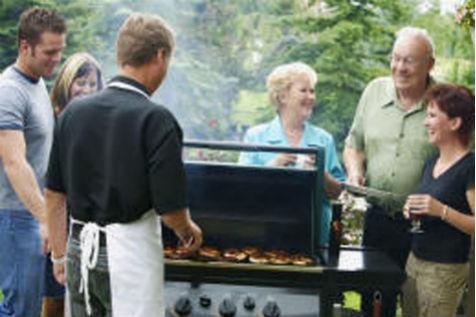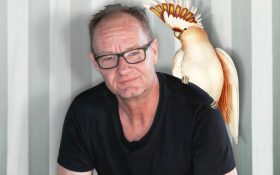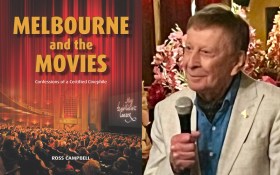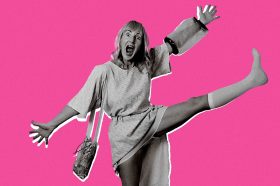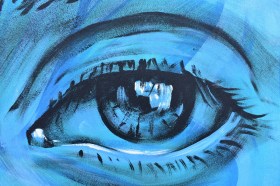Contemporary political discourse tends to focus on what some have deemed to be the ‘barbecue-stoppers’: immigration, taxation, interest rates, and, most recently, the National Broadband Network and the alternative proposed by the federal opposition. In this context, discussing challenges faced by artists and proposing solutions does tend to get drowned by what are considered issues that matter to ‘working Australian families’ – as if artists don’t have families and don’t have work to do!
However, the arts sector does have a voice, and there are many arts advocacy groups and organisations in Australia working tirelessly to articulate that voice in the most productive fashion possible. Perhaps the most recent is the Childers Group, an independent arts forum for the ACT and the surrounding regional areas.
Comprising twelve members representing a diversity of arts practice, including the former head of the Canberra School of Art Professor David Williams AM, Artistic Director/CEO of the Street Theatre Caroline Stacey, and Managing Director of Bearcage Productions Michael Tear, the Childers Group advocacy is based on the principles of independence, objectivity, valuing the arts, and pride in Australia’s national capital city – which celebrates its centenary this year – and the rural and socially diverse areas that surround it.
The Childers Group values the exploration of the facts and taking the time to reach rational conclusions based on evidence, which is also happening more and more in the environmental debate. Indeed an inspiration for the Childers Group is the Wentworth Group of Concerned Scientists, which brings cool, calm, considered thinking to conservation matters.
Since its establishment in late 2011, the Childers Group has held two packed-to-the-rafters public forums in Canberra, and has undertaken a wide range of advocacy activities, including meeting directly with the members of the ACT Legislative Assembly, preparing detailed submissions to the ACT budget process, and corresponding with the NSW Government about the diminished arts education opportunities now provided through the TAFE system. The Group has also had a series of discussions with the Canberra Times about the importance of arts journalism, and is currently working with the ACT Government on arts tourism.
With the federal election looming in September this year, how can all those with an interest in the arts make a difference?
Evol McLeod OAM, the former director of the Tuggeranong Arts Centre, current Chair of the Belconnen Arts Centre, a longstanding arts advocate and foundation member of the Childers Group, says that the best way to engage politicians is to ‘strike a chord’. Specifically, she believes that drawing a link between arts practice and well-being is an effective way of achieving this. McLeod points to Advance Australia…where?, the cultural critique by Hugh McKay (2007), in which the author states:
The more you look at the ills of contemporary society – alienation, fragmentation, isolation, and depression – the more compelling the need for community participation in the arts scene. What better way of fostering a sense of community, promoting mental health and well-being and reducing the pressures of a competitive, materialistic society than by encouraging participation in the arts.
Julie Dyson AM, former National Director of Ausdance and another foundation member of the Childers Group, recently prepared ‘Arts Politics – an action plan’, which provides guidance to artists wanting to enter the policy debate. In essence, Dyson believes that it’s all about artists ‘telling stories about how they work and survive’ and ‘being very clear about the issues that need addressing’.
According to Dyson, the following are effective techniques for ensuring that the arts are part of the political discussion during the months of an election campaign:
- meet directly with your local member of parliament or senator;
- contribute positively by making specific reference to issues and pointing out concerns you might have as an artist, for example the way the taxation system works for you, career paths and funding opportunities;
- encourage peers to meet politicians, especially those in regional areas, where artists may have particular issues, as might mid-career artists or those working in isolated communities;
- backbench MPs don’t always hear about concerns except from the voters who take the time to engage with them;
- always follow up a discussion with a letter thanking the MP for his/her time, and summarising your understanding of the discussions and any commitments made;
- if an MP or Senate candidate changes their view on a matter relevant to the arts, be sure to acknowledge it in writing; and
- maintain the association through invitations to your arts events.
In the end, it comes down all those committed to the arts working hard to elevate the discussion. And the best way to do this is to make connections, build relationships, take time to unearth the facts, be sure of the issues that are important, and put forward ideas and well-considered solutions. Rather regrettably, Australia as a whole isn’t great at trumpeting its achievements in the arts, so it’s up to the arts community itself to take matters into its collective hands and be its own thoughtful, articulate and productive voice, and make sure the arts receive the political – and media – attention they deserve.
